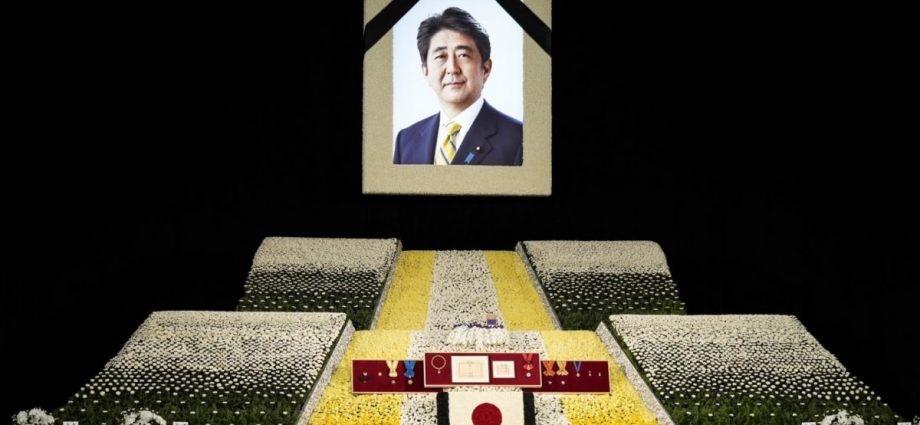
Abe was Japan’s longest-serving prime minister and one of the country’s most recognisable political figures, known for cultivating international alliances and his “Abenomics” economic strategy.
He resigned in 2020 over recurring health problems, but remained a key political voice and was campaigning for his ruling party when a lone gunman killed him on Jul 8.
The assassination sent shockwaves through a country with famously low gun crime and prompted international condemnation.
But the decision to give him a state funeral – only the second for a former prime minister in the post-war period – has provoked growing opposition, with about 60 per cent of Japanese against the event in recent polls.
The US$11.5 million price tag will be borne by the state at a time of economic pain for ordinary citizens.
Thousands have protested the ceremony and a man set himself on fire last week near the prime minister’s office, leaving notes reportedly expressing his objection to the event.
Some lawmakers from opposition parties are also boycotting the funeral altogether.
The controversy has various causes, with some accusing Kishida of unilaterally approving the funeral instead of consulting parliament, and others resentful of the cost.
It is also the legacy of Abe’s divisive tenure, marked by persistent allegations of cronyism, and opposition to his nationalism and plans to reform the pacifist constitution.
Mourners will hear eulogies from Kishida and politicians including Yoshihide Suga, who succeeded Abe after his resignation.
Japan’s emperor and empress are not attending, as neutral national figures, but Crown Prince Akishino and his wife are expected to lead mourners in offering flowers at the end of the 90-minute service.

